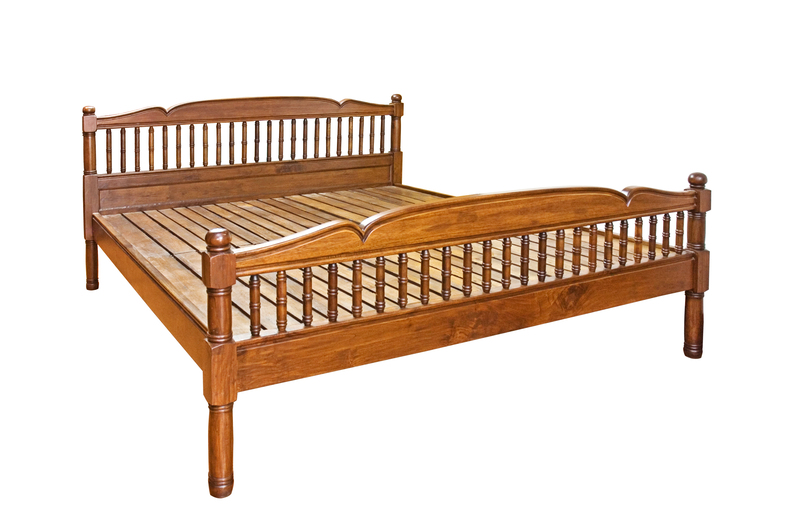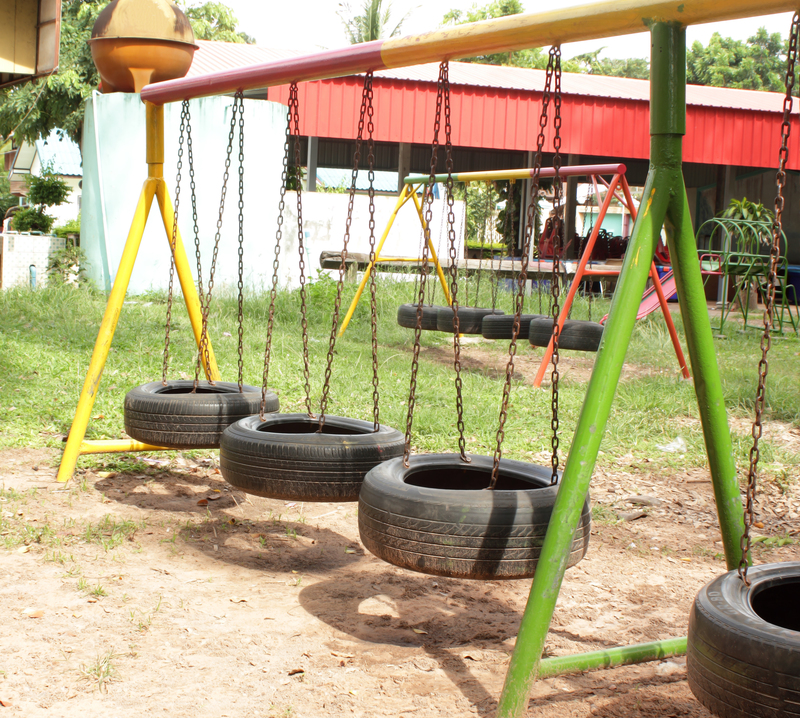How to Properly Dispose of Your Obsolete Chargers
In today's fast-evolving world of technology, it's not uncommon to accumulate a drawer full of unused or obsolete phone chargers, laptop adapters, and other electronic cables. As devices upgrade, their charging interfaces often change, leaving the previous chargers collecting dust. But did you know improper disposal of old chargers can harm the environment? Learn everything you need to know about how to properly dispose of your obsolete chargers and why it matters for eco-friendly living.

Why Proper Charger Disposal Is Important
Old chargers and power adapters are considered a type of electronic waste (e-waste). E-waste contains materials that can be harmful to people and the environment if not handled responsibly. When these electronic accessories are tossed in the regular trash, they often end up in landfills, where they can leach toxic substances such as lead, cadmium, and mercury into the soil and water.
- Environmental Impact: Chargers contain metals and plastics that are slow to biodegrade and can contaminate soil and groundwater.
- Resource Conservation: Many components inside chargers can be recycled and used in new products, reducing the need for new raw materials.
- Legal Requirements: In some regions, electronic waste disposal is regulated, and improper disposal can result in fines.
For these reasons, learning how to dispose of obsolete chargers responsibly is crucial for sustainable electronics management.
What Qualifies as an Obsolete Charger?
Before looking at the disposal process, identify which items count as "obsolete." A charger can be considered obsolete if:
- It is damaged or broken
- It is incompatible with your current devices
- The device it charged no longer works or is in use
- It uses outdated technology (such as mini-USB instead of USB-C)
If you recognize these signs among your chargers, it's time to consider responsible disposal.
Step-By-Step Guide: How to Dispose of Old Chargers Properly
1. Reuse or Repurpose If Possible
- Check compatibility: Sometimes, older chargers can still work with new devices, especially if manufacturers use universal standards. Try using the charger with backup devices, or keep one as an emergency spare.
- Repurpose creatively: Some crafters and DIY enthusiasts use old electronic cables for art or educational projects. If you're feeling creative, consider new uses for your unwanted chargers.
2. Donate Working Chargers
- Charities and nonprofits: Many organizations collect functional chargers to pair with refurbished devices for donation to schools, shelters, or low-income families.
- Local libraries or community centers: Some tech programs welcome accessory donations for lending or educational purposes.
*Pro tip: Always call ahead to confirm whether the organization is currently accepting charger donations and which models they need.*
3. Participate in Manufacturer Take-Back Programs
Most major device brands have established e-waste recycling or take-back programs. They accept chargers, cables, and other accessories you no longer need. Check your charger brand's website for drop-off locations or free mail-in recycling options.
- Apple: Apple's recycling program accepts all branded electronics, including chargers and cables, at their retail stores.
- Samsung: Samsung runs take-back programs for mobile accessories, with collection bins available at select outlets.
- Best Buy: Even if you didn't purchase your charger there, Best Buy has convenient in-store electronics recycling bins.
4. Use Certified E-Waste Recycling Centers
If the charger is broken, obsolete, or not accepted by donation programs, the next step is to find a local certified e-waste recycler. Look for centers certified by e-Stewards, R2 (Responsible Recycling), or your local authority.
- Search online for "e-waste recycling near me" or use resources like Earth911 or the EPA to locate a center.
- Some recyclers offer events or special drives for electronics collection.
5. Contact Your Local Waste Management Authority
Municipalities often operate collection points or events specifically for electronics. Check their website for guidance. Never place chargers in curbside recycling bins, as most home systems cannot process electronic accessories and they may disrupt other recycling processes.
What Happens to Recycled Chargers?
Understanding the recycling process can reinforce why proper obsolete charger disposal matters. When you deliver your old chargers to an authorized e-waste facility:
- The devices are sorted and dismantled by material.
- Plastic casings, copper wiring, and internal metals are separated for recovery.
- Copper is reused in wiring; plastics are melted and reformed for new products.
- Metals like aluminum, tin, and rare earths are extracted and returned to the industrial supply chain, conserving resources.
By recycling, you reduce landfill waste and help conserve vital resources.
What NOT to Do with Obsolete Chargers
- Never burn old chargers: This releases toxic chemicals and can even start dangerous fires.
- Don't throw chargers in the regular trash: Landfills are not equipped to handle e-waste, and chemicals may leach into the environment.
- Avoid leaving them in open spaces: Discarded electronics can be hazardous to children, pets, and wildlife.
Best Practices for Sustainable Charger Disposal
Tips to Minimize Charger Waste in the Future
- Buy only what you need: Question whether you truly need an extra charger before purchasing.
- Choose universal or multi-device chargers: These investments cut down on waste by being compatible with multiple devices.
- Store chargers carefully to avoid damage: Proper wrapping, keeping away from water, and using cable organizers can extend lifespan.
- Upgrade devices less frequently: The less often you change devices, the fewer obsolete accessories you accumulate.
Join the Circular Economy
The circular economy encourages reusing, refurbishing, and recycling products to keep materials in use longer. By donating, recycling, or responsibly disposing of extra chargers, you're supporting a healthier cycle for electronic consumption.
List of Charger Disposal Resources
- Earth911: Find local recycling locations for chargers, adapters, and cables
- Call2Recycle: Nationwide drop-off program for batteries and electronics
- Apple Trade-In Program: Accepts Apple device accessories
- Best Buy Recycling Program: In-store drop-off bins for electronics and accessories
- Your local government e-waste program: Search your city or county's website for specific options near you
Frequently Asked Questions about Obsolete Charger Disposal
Can I recycle my charger with regular household recycling?
No. Chargers and electronic cables cannot be recycled through most curbside recycling programs. They require specialized recycling facilities designed for e-waste.
Is it illegal to throw chargers in the trash?
It depends on your location. Many states and countries now have regulations that ban e-waste from trash. Check your local rules to avoid unintended violations.
Should I remove personal data from my charger?
Chargers do not store personal data, so no wiping is necessary. However, if you are recycling other electronics, be sure to erase personal information on those items.
Can I repair my old charger instead?
Potentially yes, if the charger's only issue is a frayed cord or loose connection. Some tech repair shops can fix minor issues--just make sure the cost doesn't exceed buying a new, more efficient, and possibly more universal charger.

Conclusion: Rethinking the End of Your Charger's Life
When it's time to say goodbye to an old phone or laptop charger, don't just toss it--choose a responsible solution. By reusing, redistributing, or recycling your obsolete chargers, you help keep toxic materials out of landfills, conserve natural resources, and build a sustainable future. Charging responsibly isn't just about your devices--it's about doing your part for the planet.
Key Takeaways for Disposing Obsolete Chargers
- Never throw chargers in the regular trash.
- Consider reusing or donating working chargers.
- Utilize e-waste recycling programs from manufacturers or retailers.
- Bring obsolete or broken chargers to a certified e-waste recycling center.
- Check local rules regarding electronics disposal.
With these steps, you'll ensure that your obsolete chargers are disposed of in a responsible, eco-friendly, and lawful way, leaving a positive impact on the environment for years to come.